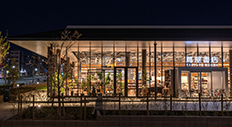[No. 228] Michiko Mamuro's bookshelf "Nene of the Watermill" by Kikuko Tsumura / Mainichi Shimbun Publications
Known as the "original charismatic bookseller," DAIKANYAMA TSUTAYA BOOKS, who recommends books in a variety of media including magazines and TV.
In this series, we take a peek into the "bookshelves" in the mind of our most popular concierge.
Please enjoy it along with his comments.
* * * * * * * *
"Nene of the Watermill"
Kikuko Tsumura / Mainichi Shimbun Publications
Click on the image to go to the purchase page.
Click on the image to go to the purchase page.
* * * * * * * *
★Greetings... "Mamuro Michiko's Bookshelf," which was released every Thursday, will now be updated every other week. It will be uploaded on the first and third Thursday of every month. Thank you for your continued support. Now, here is this week's manuscript!
This is a story of a bird and a man spanning forty years, with four stories spanning 1981, 1991, 2001, and 2011, with an epilogue in 2021.
The first to appear are Risa, who has just graduated from high school, and her younger sister Ritsu, who is ten years younger than her. After divorcing their father, their mother raised the two sisters on her own, but recently she got a fiancé who comes over every now and then, and has begun to prioritize a life with a man. What kind of man is he? He makes Ritsu, who is in the second grade of elementary school, do math problems for fifth graders, and if he gets too many X's, he doesn't eat dinner, and when he finds out that she is not coping with skipping meals, he locks her out of the house. He also threatens her, and although he doesn't make a fist, he hits her with an open hand.
Risa, on her way home from work, saw her sister alone in the park at night and learned about the situation. (Ritsu's toughness in talking to her sister is amazing! She's an extraordinary child.) It was the day she discovered that her mother had prioritized her fiance's convenience and ruined her dream of graduating. When she also brought up the man's behavior towards her sister, her mother ignored her.
Risa decides to become independent and takes Ritsu to a job at a soba noodle restaurant in the mountains. The job description for the restaurant listed at the employment office has a strange sentence attached to it: "You'll need to take care of birds."
Now, it's time for Nene to appear. She has a place and a role to play, and her existence is recognized. The sisters have lost this position, which is related to human dignity, but the bird has it. From the second episode onwards, a former music college student and a third-year junior high school boy also come to see Nene. All of them have lost sight of their place and the meaning of their existence.
Dramatic events occur, such as the further issue of the mother's fiance, the arrival of a typhoon, and the search for missing persons, but the highlight of the story is the author, Tsumura Kikuko's, sense of "lifestyle and distance."
For example, Risa, who is good at sewing, suggested to a chorus group from a local women's association that they wear matching capes over their shoulders when they attend a recital, and she ended up in charge of costumes, which led to a great success. A few days later, Makabe-san, the president of the women's association, said to her, "We weren't thoughtful enough, and we forgot to ask for transportation costs in addition to the cost of materials for the cape. I know how many times you went to the craft store, and I want to know how much the round-trip train fare is, just to be sure."
In the typical "good story about a protagonist with family problems who ends up in a town where he interacts with the people," there's probably no mention of transportation costs. But Tsumura writes about it properly. The novel doesn't give specific amounts, but for example, if it costs 460 yen round trip three times, he gets 1,380 yen back. This must be a huge amount for an 18-year-old older sister who is raising her younger sister who is now in third grade. This kind of perspective on daily life makes the story real.
The sisters also interact with various other people, including painter Sugiko-san, Sakakibara-san, a male customer at the soba restaurant who is raising an only daughter, and Ritsuko's homeroom teacher Fujisawa-sensei, but the sense of distance they maintain towards the sisters seems to resemble something... and so they came up with the idea of Nene!
The relationship between humans is no different from that between humans. They trust and support each other without relying on each other, relying on each other, or getting in the way. This flat feeling is very relaxing.
The author, Tsumura-san, also gives the sisters some encouragement: "It's delicious."
During the interview at a soba restaurant, the owner, Namiko-san, served kitsune soba and rice balls to Risa, who had come by express train in just over an hour, and Ritsu, who had come along with her. "The soba was delicious."
Furthermore, the shrimp pilaf and cream soda they had on their first outing since moving in, the cake they had for the first time in a while at the chorus recital social gathering, the one-sen Western-style oyaki that Risa served to Ritsuko's friend Kanmi who came over to their house, and the Muscat grapes served at the home of their mentor, Mr. Fujisawa, were all "delicious."
There are many times when the soba noodles at the restaurant where I will be working, the food at a coffee shop I visit while out, or the cake at a buffet are "bad." But Tsumura-san never disappoints Risa and Ritsu in this regard. Every time I encounter something "delicious" from the sisters, I feel relieved and realize that I am sharing my life with them, going beyond "sympathy" or "support."
This is a story of a bird and a man spanning forty years, with four stories spanning 1981, 1991, 2001, and 2011, with an epilogue in 2021.
The first to appear are Risa, who has just graduated from high school, and her younger sister Ritsu, who is ten years younger than her. After divorcing their father, their mother raised the two sisters on her own, but recently she got a fiancé who comes over every now and then, and has begun to prioritize a life with a man. What kind of man is he? He makes Ritsu, who is in the second grade of elementary school, do math problems for fifth graders, and if he gets too many X's, he doesn't eat dinner, and when he finds out that she is not coping with skipping meals, he locks her out of the house. He also threatens her, and although he doesn't make a fist, he hits her with an open hand.
Risa, on her way home from work, saw her sister alone in the park at night and learned about the situation. (Ritsu's toughness in talking to her sister is amazing! She's an extraordinary child.) It was the day she discovered that her mother had prioritized her fiance's convenience and ruined her dream of graduating. When she also brought up the man's behavior towards her sister, her mother ignored her.
Risa decides to become independent and takes Ritsu to a job at a soba noodle restaurant in the mountains. The job description for the restaurant listed at the employment office has a strange sentence attached to it: "You'll need to take care of birds."
Now, it's time for Nene to appear. She has a place and a role to play, and her existence is recognized. The sisters have lost this position, which is related to human dignity, but the bird has it. From the second episode onwards, a former music college student and a third-year junior high school boy also come to see Nene. All of them have lost sight of their place and the meaning of their existence.
Dramatic events occur, such as the further issue of the mother's fiance, the arrival of a typhoon, and the search for missing persons, but the highlight of the story is the author, Tsumura Kikuko's, sense of "lifestyle and distance."
For example, Risa, who is good at sewing, suggested to a chorus group from a local women's association that they wear matching capes over their shoulders when they attend a recital, and she ended up in charge of costumes, which led to a great success. A few days later, Makabe-san, the president of the women's association, said to her, "We weren't thoughtful enough, and we forgot to ask for transportation costs in addition to the cost of materials for the cape. I know how many times you went to the craft store, and I want to know how much the round-trip train fare is, just to be sure."
In the typical "good story about a protagonist with family problems who ends up in a town where he interacts with the people," there's probably no mention of transportation costs. But Tsumura writes about it properly. The novel doesn't give specific amounts, but for example, if it costs 460 yen round trip three times, he gets 1,380 yen back. This must be a huge amount for an 18-year-old older sister who is raising her younger sister who is now in third grade. This kind of perspective on daily life makes the story real.
The sisters also interact with various other people, including painter Sugiko-san, Sakakibara-san, a male customer at the soba restaurant who is raising an only daughter, and Ritsuko's homeroom teacher Fujisawa-sensei, but the sense of distance they maintain towards the sisters seems to resemble something... and so they came up with the idea of Nene!
The relationship between humans is no different from that between humans. They trust and support each other without relying on each other, relying on each other, or getting in the way. This flat feeling is very relaxing.
The author, Tsumura-san, also gives the sisters some encouragement: "It's delicious."
During the interview at a soba restaurant, the owner, Namiko-san, served kitsune soba and rice balls to Risa, who had come by express train in just over an hour, and Ritsu, who had come along with her. "The soba was delicious."
Furthermore, the shrimp pilaf and cream soda they had on their first outing since moving in, the cake they had for the first time in a while at the chorus recital social gathering, the one-sen Western-style oyaki that Risa served to Ritsuko's friend Kanmi who came over to their house, and the Muscat grapes served at the home of their mentor, Mr. Fujisawa, were all "delicious."
There are many times when the soba noodles at the restaurant where I will be working, the food at a coffee shop I visit while out, or the cake at a buffet are "bad." But Tsumura-san never disappoints Risa and Ritsu in this regard. Every time I encounter something "delicious" from the sisters, I feel relieved and realize that I am sharing my life with them, going beyond "sympathy" or "support."
* * * * * * * *
(Redirects to Yahoo! Shopping)

DAIKANYAMA TSUTAYA BOOKS Literature Concierge
Michiko Mamuro
【profile】
"The original charismatic bookseller" who recommends books in various media such as magazines and TV. She has a serial in the magazine "Fujingaho" and Asahi Shimbun Digital's "Honya no Hon". She is also active as a book critic, and her paperback reviews include "The Pale Horse" (Agatha Christie/Hayakawa Christie Bunko), "Motherhood" (Minato Kanae/Shincho Bunko), "The Snake Moon" (Sakuragi Shino/Futaba Bunko), and "Staph" (Michio Shusuke/Bunshun Bunko).
























